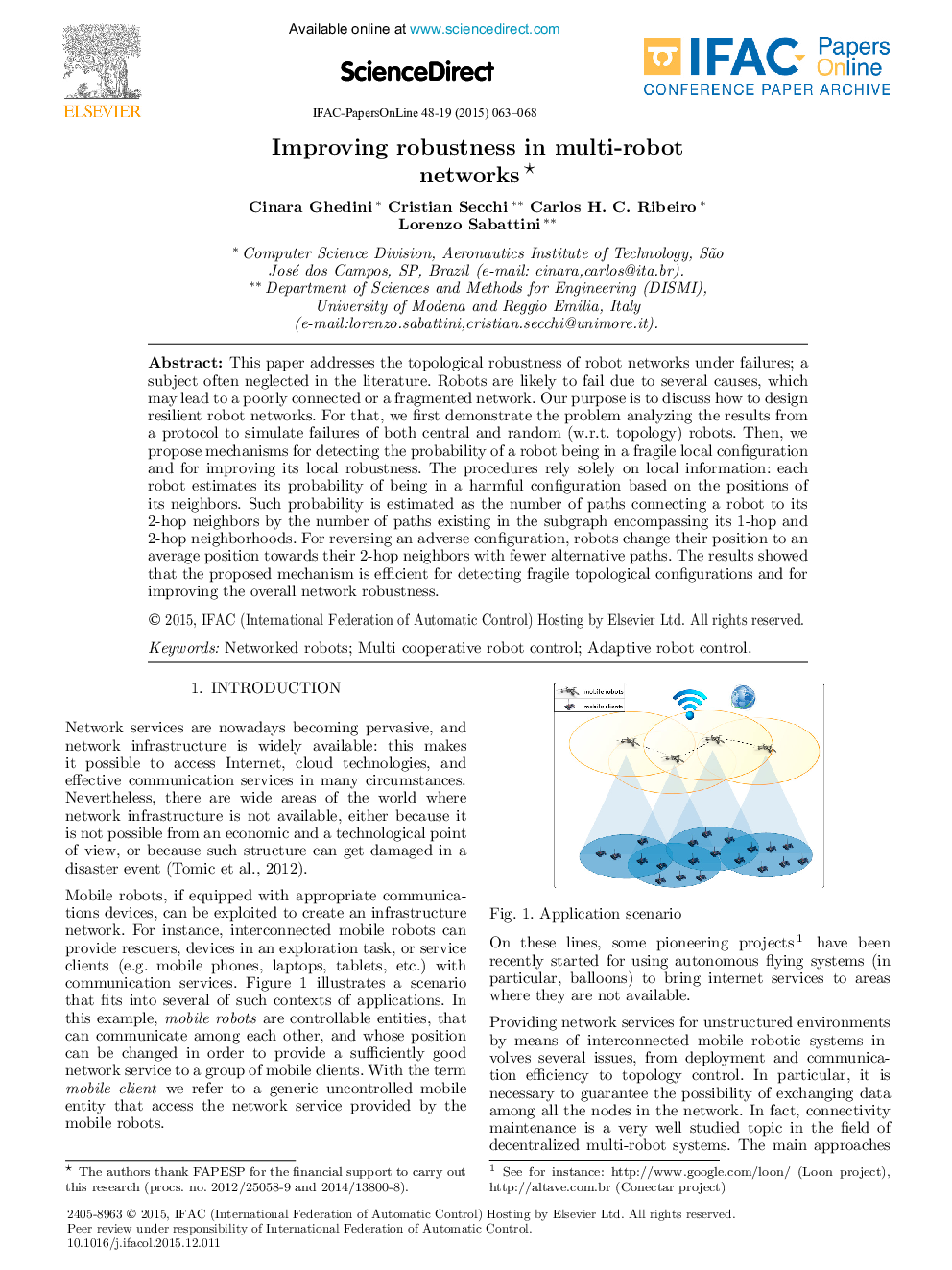| Article ID | Journal | Published Year | Pages | File Type |
|---|---|---|---|---|
| 714976 | IFAC-PapersOnLine | 2015 | 6 Pages |
This paper addresses the topological robustness of robot networks under failures; a subject often neglected in the literature. Robots are likely to fail due to several causes, which may lead to a poorly connected or a fragmented network. Our purpose is to discuss how to design resilient robot networks. For that, we first demonstrate the problem analyzing the results from a protocol to simulate failures of both central and random (w.r.t. topology) robots. Then, we propose mechanisms for detecting the probability of a robot being in a fragile local configuration and for improving its local robustness. The procedures rely solely on local information: each robot estimates its probability of being in a harmful configuration based on the positions of its neighbors. Such probability is estimated as the number of paths connecting a robot to its 2-hop neighbors by the number of paths existing in the subgraph encompassing its 1-hop and 2-hop neighborhoods. For reversing an adverse configuration, robots change their position to an average position towards their 2-hop neighbors with fewer alternative paths. The results showed that the proposed mechanism is efficient for detecting fragile topological configurations and for improving the overall network robustness.
